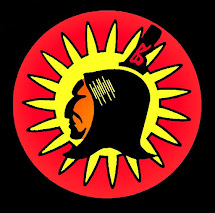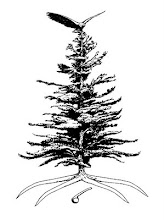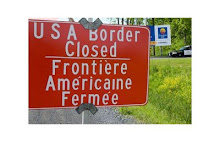Friday, April 27, 2012
It's Time to Stop Asking Everyone to "Honor Indian Treaties" and Start Demanding Legal Standing
Posted: Thursday, April 26, 2012 9:50 am
The Seneca Nation of Indians took its case for honoring Native
American rights to an international stage this week.
With a small delegation of officials from other tribes, Robert
Odawi Porter, Seneca president, spoke to the United Nations Special Rapporteur
Wednesday in Washington D.C. Specifically, the tribal leaders met with
Rapporteur representative James Anaya on his first official visit the United
States.
During the meeting, President Porter told of instances in the
Seneca’s history when the tribe’s sovereignty was infringed upon and treaty
rights were ignored by state and federal authorities.
“The treaty commitments that were
made by the United States are still valid today — the treaty violations
therefore must be addressed in meaningful and substantive ways,” President
Porter said in a press release. “We can no longer abide the federal
government’s track record of treaty abrogation and the path of destruction that
has mangled Native lands, resources, and communities.
My Response
It is not a question of asking the international
community to honor or recognize Native sovereignty. The question is where, when
and how was there ever a legal or internationally recognizable transfer of our
sovereignty to the US, Canada or anyone else. If we start with the premise that
our sovereignty WAS recognized, the only way it could not STILL be is that if
there was some legal act of subjugation. Let the US or Canada produce their
treaty that establishes that transfer of authority. Our sovereignty is NOT a
treaty right and it was not surrendered in one either.
This isn't about a broken promise. We aren't
jilted lovers. We are not begging for the international community to respect us
or feel sorry for us. Our sovereignty is an internationally
recognized authority to "carry ourselves". We aren't asking a favor
of the world. It is the legal and moral obligation of other nations to acknowledge
that America's "Final Solution" has failed. We are still here and
although it is argued that some of our distinction has faded (and how could it
not have in light of US and Canadian policies?), our sovereign birthright has
not.
Subscribe to:
Post Comments (Atom)













![-[]-[]-/\-[]-[]-](https://blogger.googleusercontent.com/img/b/R29vZ2xl/AVvXsEjLoXmKO8PJVQ5pZ2q7GX7nFKw8H2tb28dxt-o10FUBNtOGszWhWoLB7tgjtMgtISpuSxNW3fcDxfuSS2DqojsdjNJ1lVggyUS374PnzsDbOhk4ukvtTunFQcyfkckZeBzcLbri4LDYN_E/s214/29-03-A-voice-from-the-Akw-.jpg)





10 comments:
A very impressive response. You are absolutely right in stating that our inherent sovereignty was never surrendered in any battle, treaty or courtroom. It's embarrassing when our leaders go to the international stage and beg for recognition. Would "you" ask for recognition for being a human being? No, because it's undeniable as is our inherent sovereignty. R
The feds were in onondaga wednesday to drop off papers saying they owe taxes for the years they have been operating their smoke shop. chiefs from most of our communities were there to tell them to STFU and fire your consul that are directing you to do this stupid stuff. A history lesson was given as well as a reminder that the Mohawks dont have to renew the seaway agreement. The fact that NY has run their power lines and bridges right thru our land was also mentioned by the elders from onondaga..yea it was tense. It was left in the feds lap to look up what article 6 of their constitution says before they think about enforcing that bs
to be an successful american politician these days you need several things besides lack of common sense ... crookedness, greed, n lack of respect,morals :-O
Is Sovereign recognized individually or as a Nation of People?
Is sovereign individual or is sovereign recognized as a Nation or Group of People. is sovereign protection? What is the true intent of the very meaning sovereign? This word is out there with little understanding?
If you look up the difference between a Republic and a Democracy, one of the main distinctions is that in a Republic the sovereignty and other inherent rights and authorities are vested in the individual. In a Democracy, sovereignty is considered a power of the state. The US was designed to be a Republic, although it is hard to tell. The model for this Republic was the Haudenosaunee and the Kaianerehkowa. The difficulty in all this is when the representatives of these nations, founded on these principals, start to believe THEY are the SOVEREIGNS simply because they claim to be the government, it begins to unravel. The people need to stand up and assert THEIR sovereignty.
Thank you for your reply Mr. John Kane. Much appreciate you responding. I Love the fact that I feel that you are breath of fresh air to the real problems that exist on Tribal Issues from with In and on the Out Side with such Tact in your words will resonate across Indian Country. Thanks again. I am a member of the Osage Tribe. And we need a voice.
John you expressed our issue of sovereignty exactly the way it needed to be said.we hope that our people read this and also members of the Anglo leadership. thanks as a member of the Great Seneca Nation.
This is what I have been trying to explain to my people the Osage.
I wonder if, sovereign nations-like those of indigenous peoples-would consider expressing their sovereignty in other ways on an international level?
The perpetual antagonism with the Feds needs to be elevated IMO. Questions and issues considered need to be aware of other nations ASIDE from those that surround indigenous people. These questions should sound more like-
should indigenous nations consider accepting refugees from war torn parts of the world?
Should indigenous nations consider making first contact with Amazonian peoples?
ALONGSIDE fighting for sovereignty, nations (around the planet) express their place in the world by tackling world issues. Even the North Koreans 'express' their sovereignty by continuing to develop WMDs (which I am not advocating for here in any way shape or form).
On the first question, the consideration of resources available for refugees need to be addressed. However, what better way to employ people of these nations than to care for others who are suffering? Just a thought, there's plenty of issues here, I'm sure.
On the second question, I cannot think of a better global problem that should be addressed by indigenous peoples of our hemisphere. This is a real issue. If the end result is no contact with any Amazonian peoples, then let that be so. But, who better to advocate for such an outcome than the indigenous peoples who had no choice in contact, and have hundreds of years of oppression to learn from, speak about, and advocate with?
Why not advocate for a larger 'expression of sovereignty vocabulary' from leaders? Additional actions that bear the marks of indigenous culture go beyond fighting the Feds. Sometimes fights are needed.
In all, my comments are made in good faith, to advance the conversation. I may be wrong on the focus of this
Post a Comment